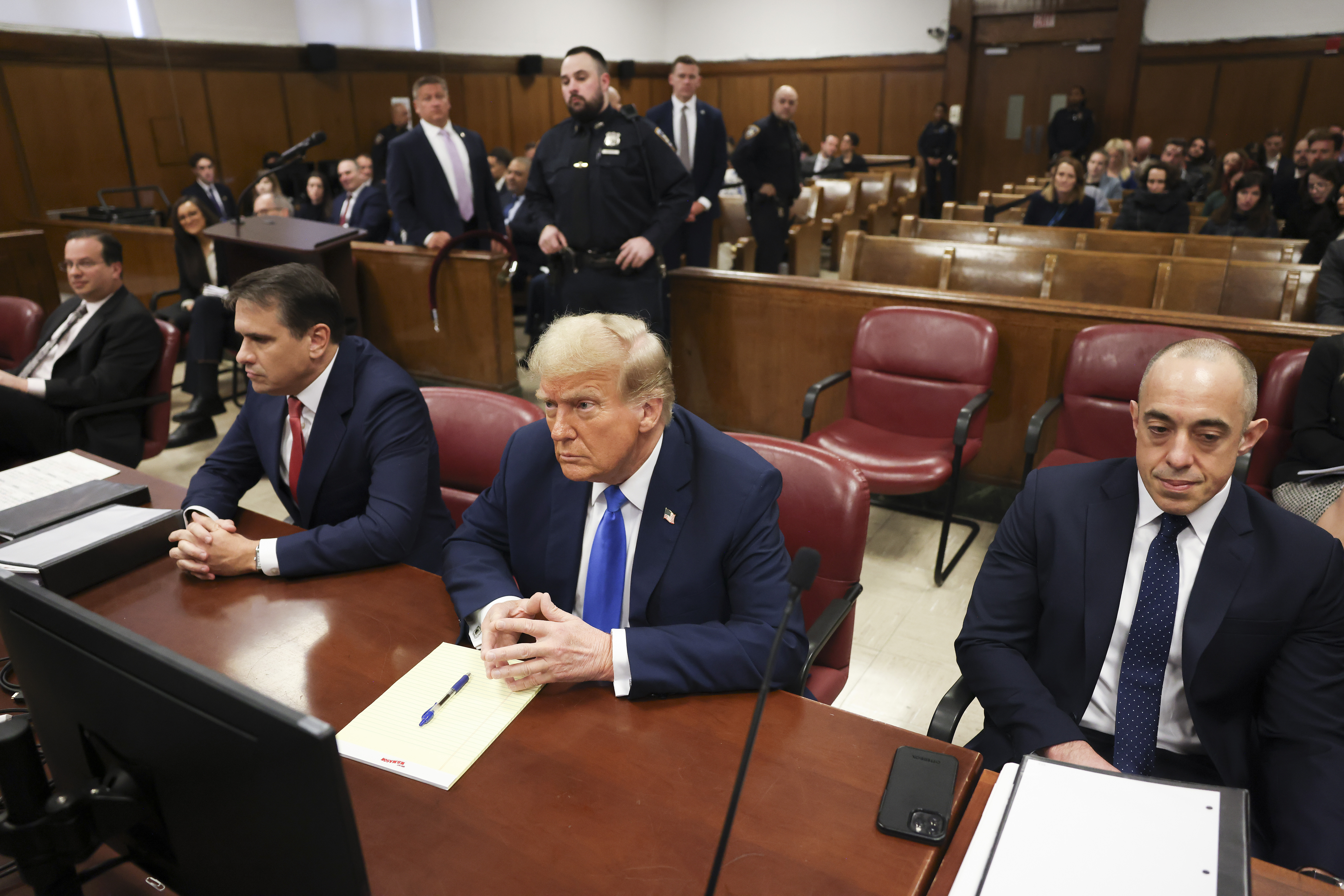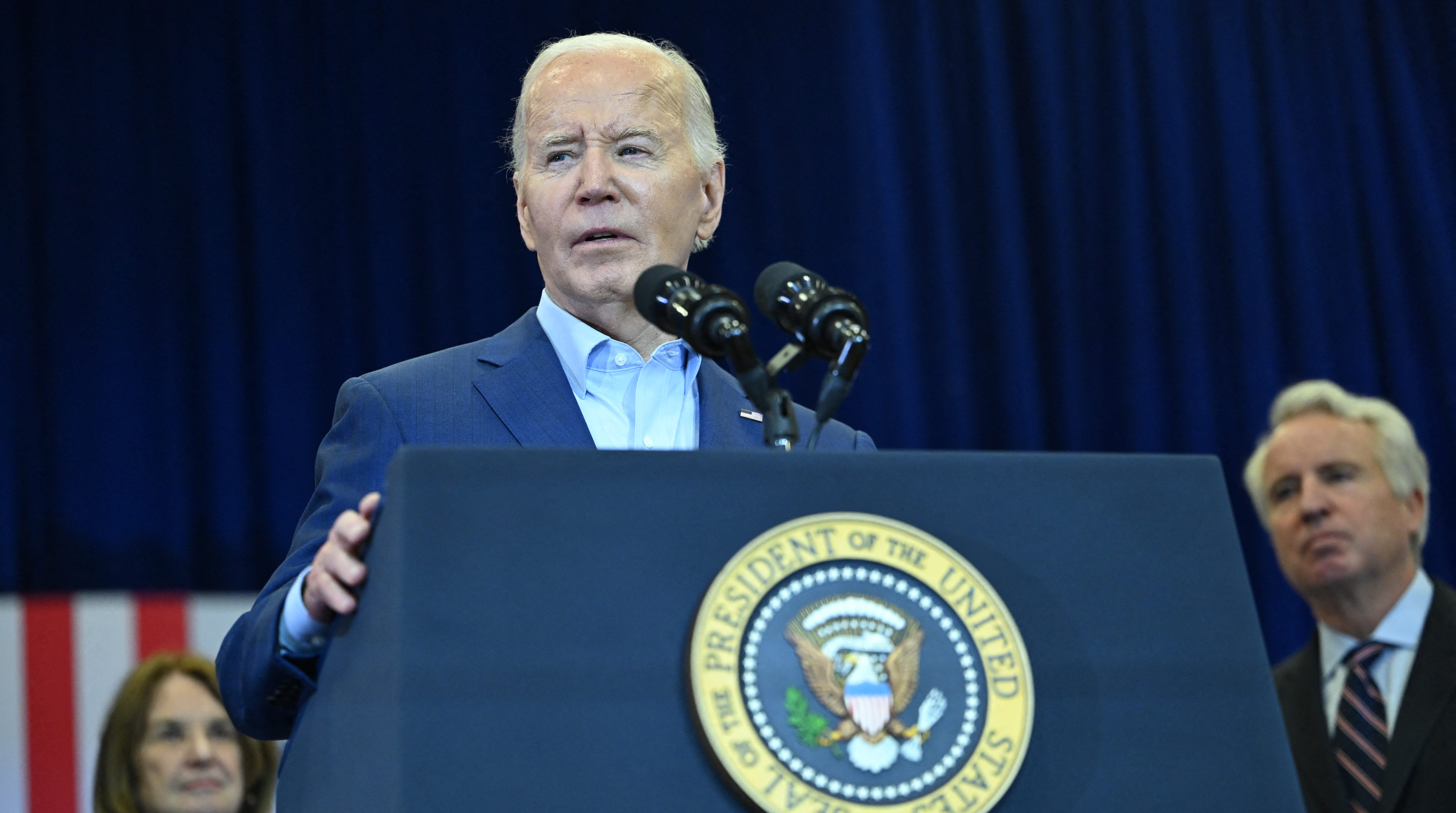U.S. Secretary of State Mike Pompeo said Monday that he and North Korean leader Kim Jong Un made "significant progress" toward an agreement for the North to give up its nuclear weapons. While significant work remains to be done, he said he expected further results after an as-yet unscheduled second summit between Kim and President Donald Trump.
"It's a long process," Pompeo told a small group of reporters in the South Korean capital of Seoul where he traveled after meeting with Kim in Pyongyang on Sunday. "We made significant progress. We'll continue to make significant progress and we are further along in making that progress than any administration in an awfully long time."
He would not be specific but said he and Kim had agreed to shortly begin working-level talks on the nuts and bolts of denuclearization, on the placement of international inspectors at one of North Korea's main nuclear facilities, and had come close to finalizing a date and venue for the next Kim-Trump summit.
Trump, tweeting from Washington shortly after Pompeo left North Korea, cited progress Pompeo had made on agreements he and Kim came to at their June meeting in Singapore and said, "I look forward to seeing Chairman Kim again, in the near future.'
Pompeo said he and Kim had gotten "pretty close" to fixing the logistics for the summit but stressed that "sometimes that last inch is hard to close."
"Most importantly, both the leaders believe there is real progress that can be made, substantive progress that can be made at the next summit and so we are going to get it at a time that works for each of the two leaders and at a place that works for both of them," he said. "We are not quite there yet. But we will get there."
North Korea's state-run news agency KCNA, meanwhile, said Monday that Kim had "expressed his will and conviction that a great progress would surely be made in solving the issues of utmost concern of the world and in attaining the goal set forth at the last talks with the projected second DPRK-U.S. summit talks as an occasion." DPRK is the acronym for the country's official name: Democratic People's Republic of Korea.
Politics
In an early Monday dispatch, KCNA called the talks "productive and wonderful" and said that "mutual stands were fully understood and opinions exchanged."
In Seoul, before leaving for talks with Chinese officials in Beijing, Pompeo said Kim is expected soon to name deputy foreign minister Choe Son Hui as a counterpart for his new special envoy for North Korea, former Ford executive Stephen Biegun, who accompanied him on the trip. He and Biegun both said they expected meetings at the working level to begin soon and become quite frequent before the next summit.
"We are starting to see a first wave of actions we can take on all four pillars of the Singapore communique," said Biegun, who will serve as Pompeo's pointman in negotiations with the North as well as work with South Korea, Japan, China, Russia and other countries that have an interest in the talks.
In Pyongyang on Sunday, Pompeo and Kim met for about 3 1/2 hours, first in a business session and then in a 90-minute luncheon that the North Korean leader hosted at a state guesthouse, according to the pool report from the lone U.S. journalist allowed to accompany Pompeo on his Asia trip.
"It's a very nice day that promises a good future for both countries," Kim told Pompeo through an interpreter as they sat down for the meal.
"Yeah, so we had a great, great visit this morning," Pompeo replied.
Before visiting Pyongyang, Pompeo held talks in Tokyo with Japan's prime minister, and pledged that the Trump administration would coordinate and unify its strategy for denuclearization with its allies. Japan has been wary of the initiative, but South Korea has embraced it.
Pompeo has repeatedly refused to discuss details of negotiations, including a U.S. position on North Korea's demand for a declared end to the Korean War and a proposal from Seoul for such a declaration to be accompanied by a shutdown of the North's main known nuclear facility.
The U.S. and Japan have pushed for the North to compile and turn over a detailed list of its nuclear sites to be dismantled as a next step in the process. The North has rejected that and South Korea has suggested it may not be a necessary next step.
Pompeo, however, played down the differences.
"I've never been involved in an international discussion where there weren't differences of view, not only between governments but inside of governments," he said. "But if you look at the approach, we are in lockstep with each of those two countries in terms of how we approach achieving the results that everyone is aimed at. And so there'll be tactical places where we'll have debates and disagreements, that is a necessary component of getting to the best deliverable."
"But with respect to our relationship with the Republic of Korea and Japan on this issue, I have found that we are in lockstep on the most important issues and how to approach them," Pompeo said.
Since the denuclearization effort got underway with a secret visit to the North by then-CIA chief Pompeo in April, there has been only limited progress, even since the June 12 Trump-Kim summit that many had hoped would jump-start the effort.
North Korea so far has suspended nuclear and missile tests, freed three American prisoners and dismantled parts of a missile engine facility and tunnel entrances at a nuclear test site. It has not taken any steps to halt nuclear weapons or missile development.
The North has accused Washington of making "unilateral and gangster-like" demands on denuclearization and has insisted that sanctions should be lifted before any progress in nuclear talks. U.S. officials have thus far said the penalties will remain in place until the North's denuclearization is fully verified.
Also on Monday, South Korean President Moon Jae-in said he expects Kim to travel to Russia and for Chinese President Xi Jinping to visit North Korea soon amid a global diplomatic push to resolve the nuclear crisis.
Moon said a second Trump-Kim summit could be accompanied by major diplomatic developments that could contribute to the denuclearization of the Korean Peninsula and stabilizing peace.
Moon also said there was a possibility of Kim holding a summit with Japanese Prime Minister Shinzo Abe.



